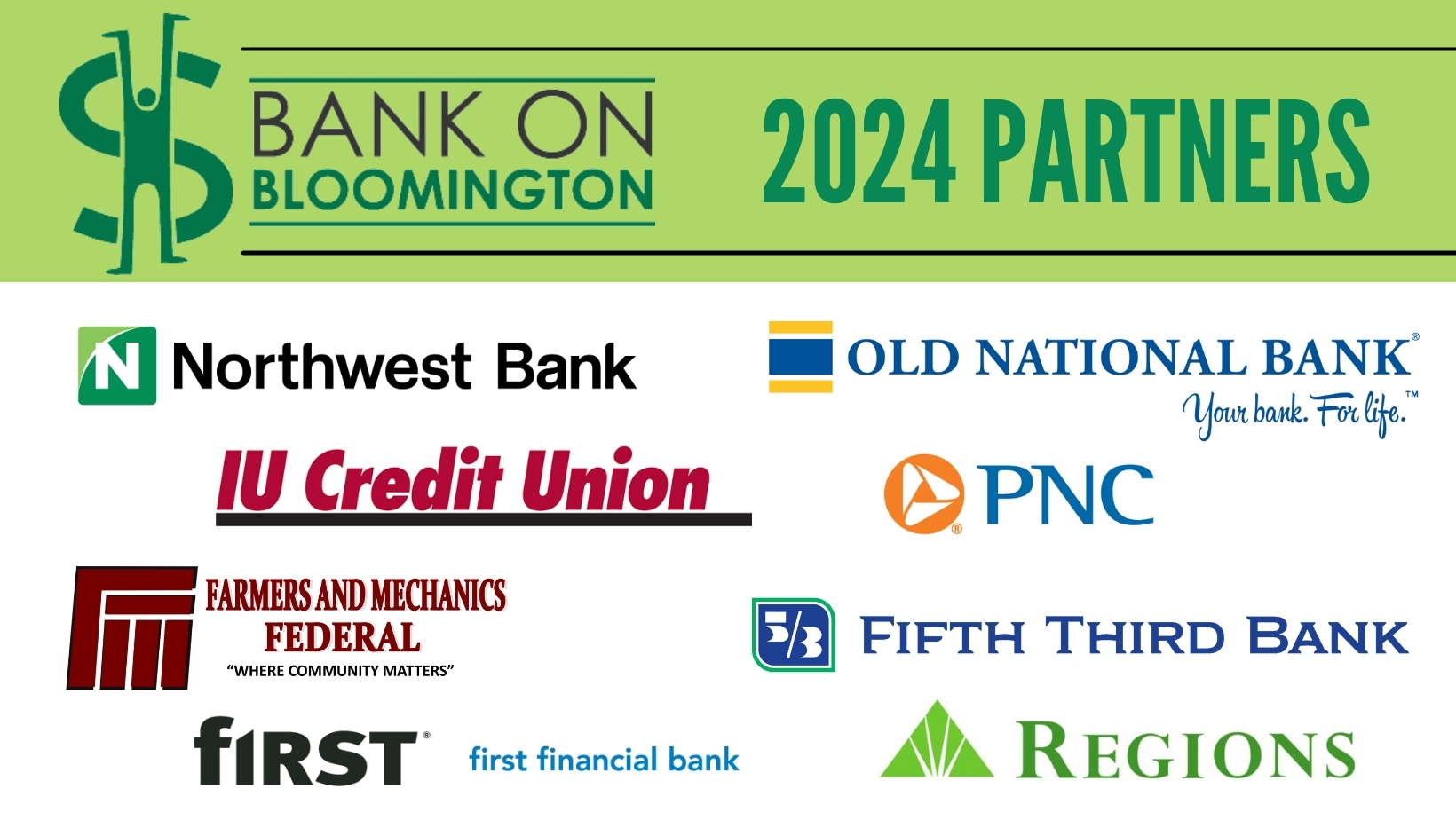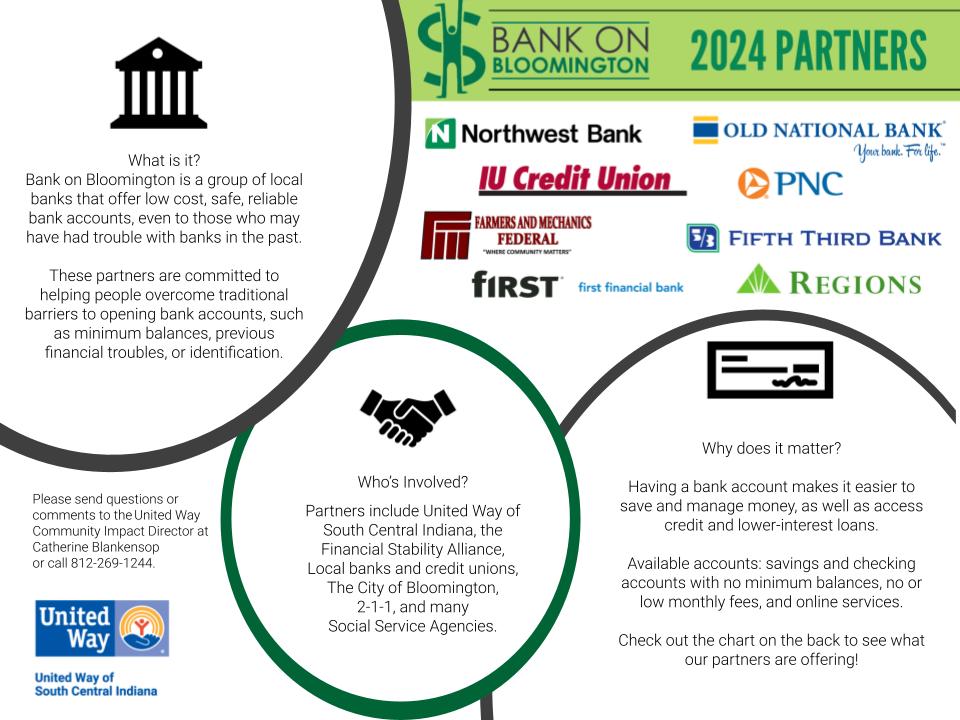
Did you know that having a bank account is a key step to financial independence? And did you know that nearly 22% of people in our community either don't have a bank account or use high-interest products like pay day loans, check cashing, and pawn shops. On average, these individuals spend $1,000/year on fees.
Bank On Bloomington is a community collaboration to help residents access mainstream financial services and education.
Have a financial question?
Submit it anonymously by clicking the button below and then look for the answer in an upcoming issue of the Dollars & Sense e-newsletter!
You can get more information about qualifying accounts at these participating institutions:
- Farmers & Mechanics Federal Bank*
- Fifth Third Bank*
- First Financial*
- IU Credit Union
- Northwest Bank
- Old National Bank*
- PNC Bank*
- Regions Bank*
*indicates recognized as meeting Bank On National Account Standards 2022-2023
Having a bank or credit union account is important for many reasons:
- It’s safe. Banks and credit unions keep your money safe from theft, fires, floods, and other natural disasters. Even if something happens to your bank or credit union, the federal government will make sure you get your money back (up to $250,000).
- It’s convenient. Having an account helps you save time - you won't have to wait in long lines to cash checks and purchase money orders. You can direct deposit your paycheck, tax refund, and public assistance benefits. You can also pay your bills with your own checks or online.
- It can save you money. Cash your checks and pay your bills without paying check-cashing fees or buying money orders.
- It can help you build your financial future. Having a bank or credit union account may help you access other financial services in the future.
Residents who have never had a bank account or have had difficulties in the past are finding that many usual barriers have been reduced or eliminated. These can include minimum balance requirements, past unpaid overdraft charges, or lack of a U.S. driver's license or state-issued identification.
Opening an Account
1) Find a participating bank that is convenient for you.
2) Ask about opening a Bank On Bloomington account. Our partner banks and credit unions have special products that are designed just for you.
3) Bring identification. You will need an Indiana ID or U.S. passport. Most banks and credit unions will also request a second form of ID. Since participating banks and credit unions have different policies, call them for specific requirements.
4) Learn how to manage your new account. Ask your bank or credit union about free classes and other opportunities to learn about account management, financial planning, and more. Check out the next section for financial education opportunities.
5) Visit these financial stability resources to help you on the path to financial success.
Financial Education Opportunities
Education workshops are an important component of the Bank On program. Workshops give Bank On clients and any interested individual the resources and supports to successfully manage their new account and improve their financial life. These workshops go over basic checking account maintenance, budgeting, and financial goal setting.
1) Online Financial Education Classes
2) Free Face-to-Face Financial Education Classes
Would you like to organize a financial class for a club, group, or a workplace that you belong to? Free financial education classes may be requested. We will do our best to connect you with an instructor from one of our Bank On Bloomington Partners, but we cannot guarantee an instructor will be available. We need at least 4 weeks advanced notice in order to arrange a class. Click here to submit your request.
3) Ask an Expert
Have a question about money? Send us your personal finance questions in the form below and one of our Bank On financial professionals will respond in an upcoming Dollars & Sense newsletter. It's entirely anonymous. And remember, there are no silly questions! Click here to submit your question.
Dollars & Sense Monthly E-news
Sign-up here to receive your own copy
Browse previous newsletters:
May 2023: Secrets of Good Credit
April 2023: Budgeting Basics
March 2023: Pay Yourself First
February 2023: Fun Money
January 2023: Taxes and more!
December 2022: What are your financial resolutions for 2023?
November 2022: NEW Bank On Dollars & Sense Newsletter


